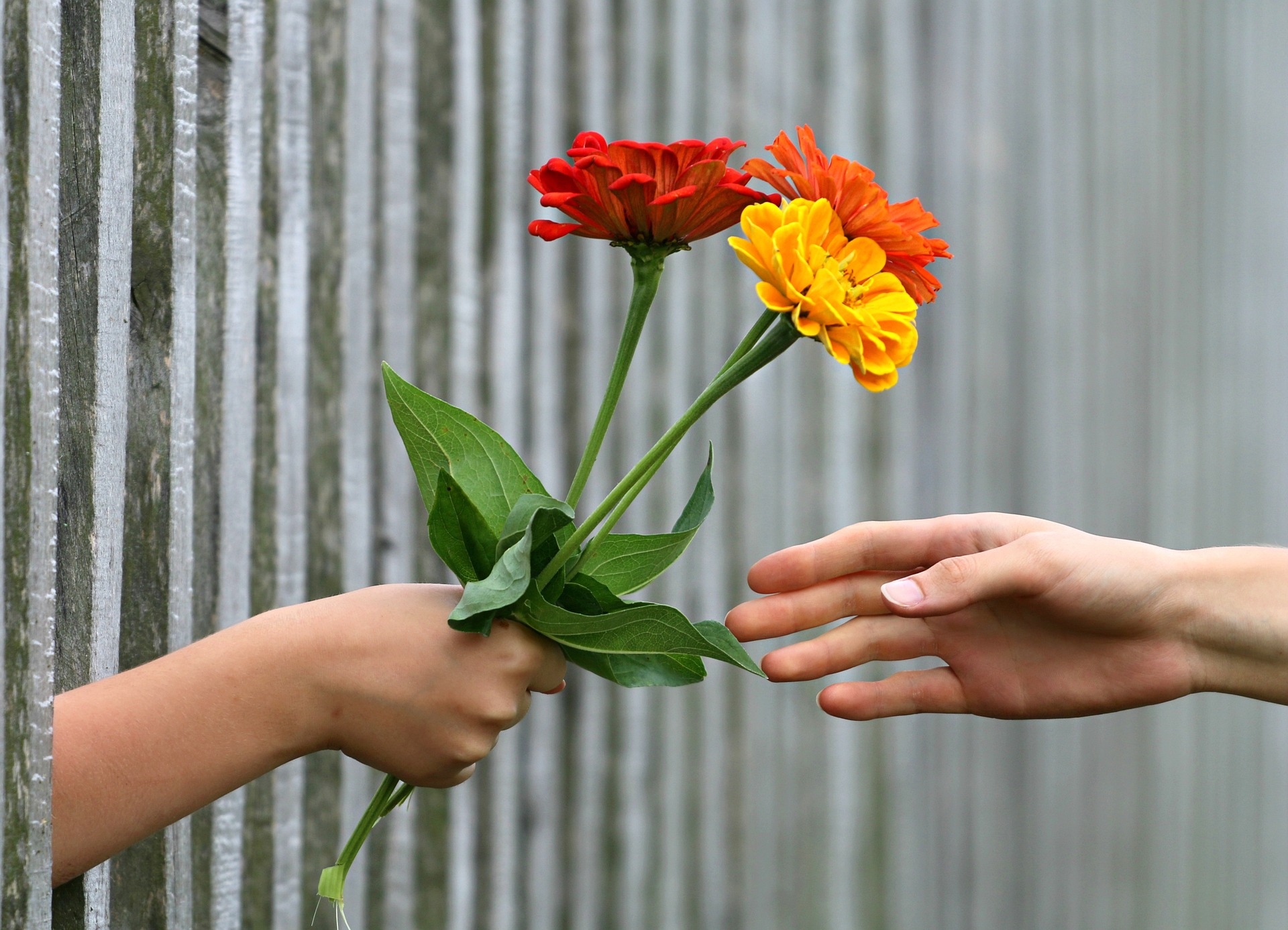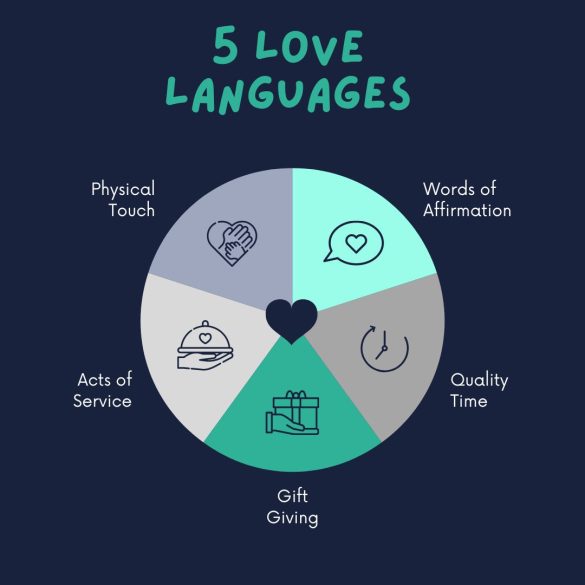If you ask Nigerians their thoughts about love, they will tell you it’s overrated. Telling you, “last last na everybody go chop breakfast.”
Then, the question is; why did end up with such mentality? It’s because they don’t know the ingredients to spice their relationships.
This article will change that by telling you how to express love in your relationship through some languages.
These languages are not Igbo, Swahili, Yoruba or Egun. They are forms of affection that will make your relationship sweet.
Table of Contents
What is a Love Language?
The phrase “love language” refers to the preferred method of showing and receiving affection from a spouse. This refers to the expressions of love various people would like to receive from others.
The phrase employs the word “language” to describe a certain way (or ways) that a romantic partner prefers to communicate (or experience) love, which may or may not include words.
Different Types of Love Languages
Dr. Gary Chapman, author of “The Five Love Languages: How to Express Heartfelt Commitment to Your Mate,” asserts that there are five different ways to express love. These five love languages refer to the five straightforward ways we want to be loved and the five straightforward ways we love others.

A lot of people like physical touch
This may be happening in a platonic or romantic connection. According to Dr. Gary Chapman, each individual has a core love language and several secondary ones. These are five love languages, let’s look at them:
-
Words of affirmation as a love language
People who prioritize verbal expressions of love, such as frequent “I love you” compliments, words of gratitude, vocal encouragement, praise, and frequently occurring digital interactions like texting and social media involvement, are said to have a love language known as “words of affirmation.”
You can brighten their day by giving them praise or pointing out their accomplishments.
-
Quality time as a love language
If quality time is someone’s preferred communication, they frequently demand attention. This is common for ladies. When the total amount of attention they desire is delivered, they feel appreciated. They flourish when you spend more time with them than you can possibly communicate.
For this type of people, showing someone you love them doesn’t require saying it aloud. Instead, it only requires giving them enough of your undivided attention. Using phones reduces eye contact, and not listening becomes inappropriate for these people.
-
Acts of service as a love language
People with this love language value those who go above and beyond to ease their burdens. This is the love language for those who think that deeds speak louder than words.
People on this list want to be shown how much they are valued, unlike those who prefer to hear it. Performing tasks such as housework, lawn mowing, etc., demonstrates your affection for them.
-
Gifts as a love language
These people absolutely like receiving things. The love language of gifts is relatively simple. When someone gives you “visual markers of love,” as Chapman puts it, you feel cherished. The symbolic meaning behind the object is more important than its monetary value.
This type of person appreciates the process of giving gifts, including careful consideration, thoughtful selection of the gift to symbolize the connection, and the emotional rewards of receiving one.
-
Physical touch as a love language
When held in the hands or arms, kissed, cuddled on the couch, or engaged in sex, people whose preferred method of expression is physical touch experience love. For those who use this love language, physical closeness and touch can be immensely reassuring and act as a strong emotional connector.
According to Motamedi, the origins can be traced back to our early years, when some people only experienced their parents’ intense love and affection through being hugged, kissed, or caressed.
How Do You Identify Your Love Language?
If you want to know your love language, think about how you show affection to the people you care about, whether they are close friends, family members, or in romantic relationships. Do you frequently cuddle up to them on the sofa? Or do you like to speak well of them and give them vocal affirmation? Would you instead make a huge show of kindness by providing a surprise ride to take them from the airport to their home?
The best way to demonstrate your concern for someone is to pay for their brunch or to buy them something when you see it when you’re shopping. Your love language is typically evident in how you express your love to others and how you want others to express their love to you.
There are two possible scenarios, it’s either you have multiple love languages or one core language and several subsidiary ones.
How Do You Identify Your Partner’s Love Language?

Finding out one’s love language is quite intriguing to people all across the world, even in Nigeria. Simply asking your partner which of the five love languages they prefer is the most effective way to determine their love language. You should express your affection to them mainly in this way because it is their primary love language.
To better understand when someone is attempting to express their love for you, you may ask them which of the five human languages they most usually employ.
Read Also: 6 Undeniable Signs that Your Partner Loves You Wholeheartedly
How to Express Love Languages in Your Relationship?
You must use them appropriately once you have determined your and your partner’s love languages. You must use the five love languages differently depending on your partner’s preferences.
-
Words of affirmation
You must carefully select your words because you’ve learned that they are everything to them. You must speak to them with words of encouragement that make them feel appreciated. Say it out loud and often when you find something positive. Avoid destructive criticism. Words have power and leave an impression.
-
Give them attention
Make time in your schedule for quality time with each other. It might be as easy as taking your spouse for a walk outside as you both listen to one another and talk in-depth about your day. Keep your phones at home.
-
Acts of service
Words are less effective than actions. Make every effort to express your affection through your deeds. It shouldn’t always be about doing duties for others. Instead, finding out what they need by asking them directly. Being watchful means thinking about ways you could make their lives easier. These seemingly insignificant deeds add up and have a significant impact.
-
Receiving gifts

Gifts can lighten your partner’s mood
Make sure to write the date on the calendar and respect the event and your partner with a nice gift so that they will remember the significant occasion. Simple gestures like a hand-picked flower from the garden or a beautiful key chain from a favorite vacation spot are sufficient. Those modest acts can greatly enhance the celebration of the connection.
-
Physical touch
Physical affection and gentle caresses are essential. It doesn’t take much organization, effort, or money to fulfill this love language, which is refreshingly plain and simple to understand.
Squeezing their arm while watching a movie or patting their butt as you pass them by are simple ways to make eye contact and establish a connection. Simple.
We may not be your romantic partner but we would love to grow your business. Sponsor your business with us to achieve growth.
Benefits of Love Languages to Your Relationship
-
It will help you and your partner feel more appreciated
If you’re an “acts of service” person dating a “words of affirmation” person, your spouse may show you affection every day and tell you, “I love you.” Still, you would spend the relationship without feeling loved because they never volunteer to run errands or do the dishes.
Understanding your partner’s love language will enable you to determine how they express their affection, a practice common in Nigeria. This will help you feel loved and appreciated even though their love-giving method differs from yours.
-
You will be able to express your wants more clearly
Everybody has experienced instances where they wished their partner would do those simple things without asking them to, like congratulate them when they dress up, bring flowers home, or arrange a date night. Because we associate these actions with their admiration, it might be unpleasant when they don’t do them. If we ask them to do anything, we could worry that they won’t do it out of gratitude or love but somewhat out of a sense of obligation.
It will be easier for you to say things like, “I feel loved when you hold my hand” or “it makes me feel valued when you clean the kitchen” if you realize that they have a different love language and that they do other things out of love.
Read Also: How to Build Lasting Friendships in Nigeria
-
It will demonstrate what you can accomplish without asking
If you know that your partner prefers “physical touch,” you will be more considerate when hugging them or holding their hand in public. You will also be able to appreciate the significance of these seemingly insignificant gestures for your partner, which would otherwise seem unimportant to you. There will be greater awareness on your partner’s part of what they can do to express their love and appreciation for you.
Making more careful judgments and efforts that make you and your partner feel loved and valued is possible when you and your partner are aware of how each other expresses appreciation and desires to be appreciated.
Criticisms of the Love Language Theory
Gary Chapman’s theory of the five love languages has had a significant influence on relationships not only in Nigeria but also around the world. However, some critics have pointed out and argued that the theory has flaws. Some of the complaints include the following:
-
Love languages can change
Every healthy connection needs active listening. Our love languages might alter over time and depend on the circumstances of our lives. We can act in ways that no longer express our feelings of love but instead anger one another if we don’t know how to listen to and speak to one another honestly.
Successful use of the love languages theory requires continuous conversation with good communication skills.
-
We can love ourselves just as much as we love others
Our “misbehavior, retreat, harsh words, and critical spirit arise due to that empty tank,” according to Chapman, who explains an inner love “tank” that we’re constantly attempting to fill. This does not imply that we must wait for our partner to cheer us up.
Of course, we may replenish each other’s tanks by showing our partners modest gestures of affection, but we also realize that to feel genuinely pleased, we must first replenish our own.
Do you speak kind words to yourself and spend time with yourself? Do you give yourself gifts?
Read Also: 8 Devastating Signs of a Toxic Relationship
-
It’s possible to utilize love languages as a quick remedy
Speaking to your lover lovingly daily is known as a “love language.” They instruct us on how to communicate with our partners under pressure. Still, they leave out the following step: People adore the idea of a quick remedy, but there is no quick repair for the human condition, which becomes two times more complex from the perspective of a serious relationship.
A partnership needs a full toolbox, not just one item. They require touch, quality time, words, and service, but they also need honesty, trust, shared objectives, and strategies to overcome unavoidable disagreements.
Conclusion
Any relationship will succeed if we recognize our partners’ various love languages and pay attention to their needs. These abilities play a role in keeping the partnership strong during trying times. Although Dr. Gary Chapman’s love languages theory is fantastic, it is only one aspect of what constitutes a good relationship.
Great relationships begin and are sustained by the deliberate practice of being aware of your partner’s innate desire and learning how to work it out, especially in intimate relationships. This has been seen both globally and in Nigeria.
Did you enjoy reading this? How has any of the love languages helped your relationship? Start a conversation on Insight’s WhatsApp community. Let’s learn from your love life.
About Author
- I am an enthusiastic content and creative writer. I harness opportunities to make fact-based, fictional and SEO-enhanced creative content that are captivating, interesting and worthwhile.
Latest entries
 CampusDecember 11, 2023Who is a Notary Public, and Why Might You Need One as a Student
CampusDecember 11, 2023Who is a Notary Public, and Why Might You Need One as a Student EntrepreneurNovember 30, 2023All You Need to Know About Venture Capital As a Nigerian Entrepreneur
EntrepreneurNovember 30, 2023All You Need to Know About Venture Capital As a Nigerian Entrepreneur CareerJuly 26, 2023How to Become a Business Intelligence Analyst in Nigeria
CareerJuly 26, 2023How to Become a Business Intelligence Analyst in Nigeria Business InsightsMay 17, 2023Top 8 Direct Marketing Strategies for Nigerian Business Owners
Business InsightsMay 17, 2023Top 8 Direct Marketing Strategies for Nigerian Business Owners


2 comments
Awesome content! Speak your partner’s love language to them, not yours.
Thank you